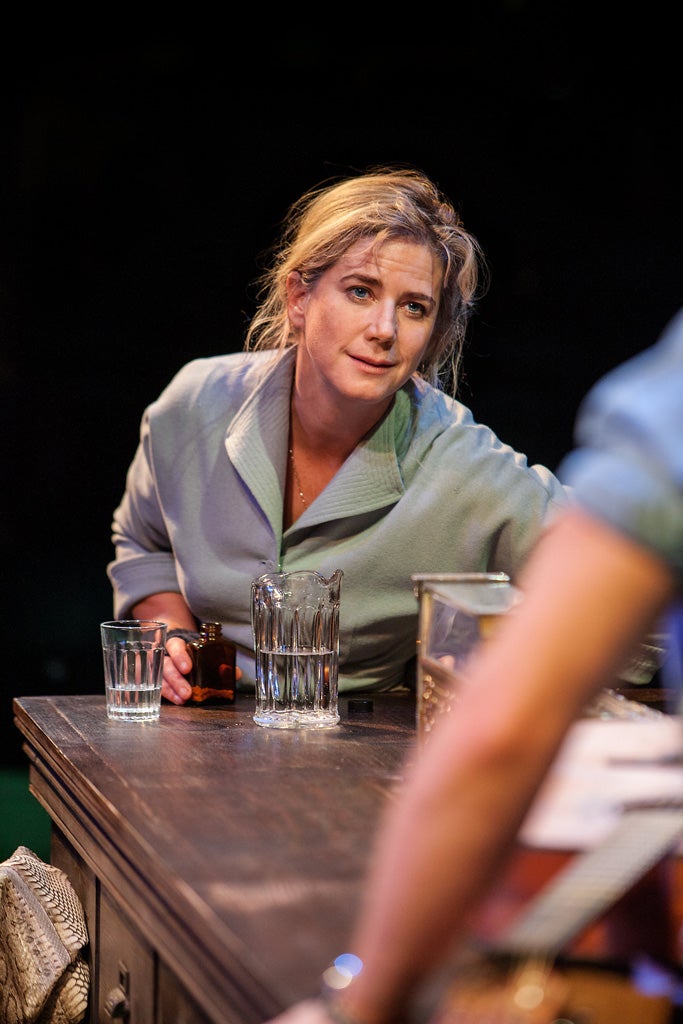
Imogen Stubbs looked bashful at the curtain call, as if embarrassed by all the fuss. This may have been because one of her defining moments in a theatre audience was watching Vanessa Redgrave playing the same role of Lady, the lonely, broken, middle-aged immigrant Italian woman for whom life’s possibilities in America’s South are suddenly reawakened. Stubbs tells how the image of Redgrave at the end – sitting like a broken doll – was so devastating that it felt inappropriate to clap at the curtain call.
The devastating part of this press night was the mobile phone which pierced the silence of the shattering finale. Yet neither that nor Redgrave’s quality could diminish Stubbs’ portrayal of the woman whose life is changed when Val (Luke Norris) a young man with a guitar, a snakeskin jacket and a questionable past walks through the door of her shop - to save her from the penury of marriage to the dying man who was complicit in the death of her own father.
The work, with its walk-on cast of oddball characters who contribute little, is certainly not Tennessee Williams’ finest, and has always required one very fine actress to carry it. Its opening is ponderous and its first half onerously long. But Stubbs’s performance builds in such an incremental and calibrated way to such an intense conclusion that the scenes without her seem like inconvenient space fillers by the time the curtain falls.
Overall, she plays it more for laughs than lust, offering more of womanhood’s psychology than sexuality, and draws plenty of comic capital out of Lady’s rapid, idiosyncratic English. “I’m not interested in your perfect functions,” she tells Val. But it is when she arrives minus her shopkeeper’s apron and with heels after the interval – later still we see her shoulders – that we sensethis woman, nervously fiddling with her hair and neck, is being drawn in. Her plaintive: “I need you to live. To go on living” is almost a surprise. This is a portrayal of one of the spiritually wounded. As the itinerant Val states, in the play’s keynote line: "We're all of us sentenced to solitary confinement inside our own skins, for life!"
Williams’ devastating messages about prejudice are crammed in, too. It was for his failure to practice racial discrimination that Lady’s father was killed by the Klu Klux Klan. But its portrait of one woman banishes all else to the margins.
To November 24, Box Office 0161 833 9833 royalexchange.co.uk
Subscribe to Independent Premium to bookmark this article
Want to bookmark your favourite articles and stories to read or reference later? Start your Independent Premium subscription today.

Join our commenting forum
Join thought-provoking conversations, follow other Independent readers and see their replies